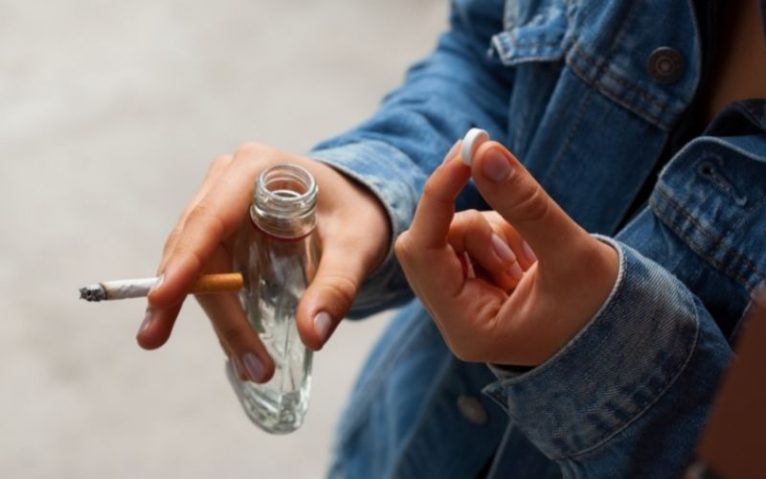There might sometimes be that after a few drinks, your head is pounding. Most people will reach their medicine cabinet and take an acetaminophen (Tylenol) pill or two in the hopes of alleviating their symptoms. Well, mixing Tylenol and alcohol might not be the smartest combination after all.
Understanding Acetaminophen
Acetaminophen is a popular over-the-counter pain reliever medication to treat minor aches. It’s also used as a fever reducer. Like many anti-inflammatory drugs (NSAIDs), acetaminophen is available without a prescription at various strengths. These pains are often side effects of drinking, so it’s not surprising that people mix these two often. The problem is, sometimes the combination of these drugs can bring detrimental effects.
Can You Take Tylenol After Drinking?
Simply put, you shouldn’t take Tylenol after drinking. So, the answer is no. Research suggests that mixing acetaminophen and even light amounts of alcohol can double the risk of kidney disease. The study proved a connection between the acetaminophen-alcohol combination and a noticeably increased risk for kidney disease. In addition, chronic acetaminophen and chronic alcohol abuse have been linked to kidney and liver disease.
[box type=”bio”] Is a loved one struggling with addiction? We can help! [button link=”tel:18663082090″ type=”big”] Call Now![/button][/box]
The Dangers of Mixing Tylenol and Alcohol
To understand the dangers of mixing these substances, you have to know how the body operates. Different enzymes help the body break down acetaminophen so your body can use them. Most of these enzymes are in your liver. However, alcohol can have a direct impact on these liver enzymes. As your body breaks down acetaminophen, it converts it into a harmful substance. Your liver then processes this substance and removes it from the body. As you might know, the liver works as a detoxifying organ in the body. Drinking alcohol while taking acetaminophen causes your body to make more of the harmful substance, making it harder for the liver to get rid of it. Then, the toxic substance has enough strength to attack the liver, resulting in severe liver damage. While this won’t happen on one occasion, over time, chronic alcohol intake depletes the liver from its enzymes and increases your risk of cirrhosis of the liver or liver failure. In addition to the long-term effects of mixing these substances, you’re also more likely to suffer an acetaminophen overdose if there’s kidney and liver damage. The maximum dosage for Tylenol is about 3,000 mg per day. Exceeding this dose may worsen the effects of liver damage and could potentially cause death. For the most part, acetaminophen overdoses are accidental. People don’t realize how much they’re taking and how severe the side effects can be.
Symptoms of Liver Damage
Liver damage is often a silent disease that most people don’t notice until it’s far advanced. Acute liver damage from alcohol and Tylenol can occur relatively quickly since this combination accelerates the process. Symptoms of liver damage include:
- Yellowing of the skin or the whites of the eyes
- Pain in the upper portion of the abdomen
- Swelling of the abdomen
- Loss of appetite
- Nausea and vomiting
- Tiredness
- Sweating
How Long After Drinking Can I Take Tylenol?
Typically, taking the standard dose of Tylenol (3,000 mg of acetaminophen) after one night of moderate drinking should not cause liver damage. However, regular, heavy alcohol use combined with repeated daily doses of acetaminophen can increase the risk of acetaminophen-related toxicity. While this guideline should be straightforward for most people, not all alcoholic beverages contain the same amount of alcohol. Here’s the breakdown of what’s considered one alcohol:
- 12 ounces of beer
- 8 ounces of malt liquor
- 5 ounces of wine
- 1.5 ounces of distilled spirits (vodka, gin, whiskey, rum, and tequila)
However, keep in mind that you should never take acetaminophen while under the influence of alcohol. Technically, you want to wait until the next day to take the recommended dosage for Tylenol. Mixing alcohol and acetaminophen may cause harmful reactions in your body that accelerate liver and kidney damage. Besides this, you also want to avoid daily doses of acetaminophen unless prescribed by your doctor.
Learning More About Polysubstance Abuse
Some people are at higher risk of liver damage than others. For example, binge drinkers or heavy drinkers should avoid Tylenol. People with pre-existing liver damage should not use or combine these substances either. If you or someone you know struggles with alcohol abuse, consider reaching out to a specialist for medical advice, diagnosis, or treatment recommendations. Addiction can take a toll on your mental health; call 866-308-2090 today to speak with a Lighthouse Recovery Institute therapist or admission specialist and learn more about our alcohol addiction rehab programs.









